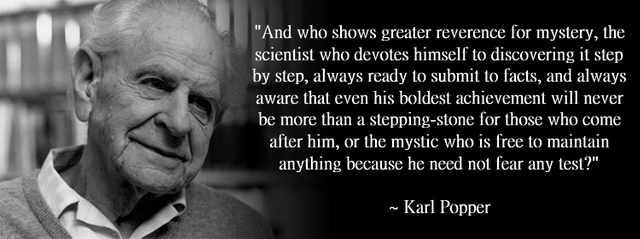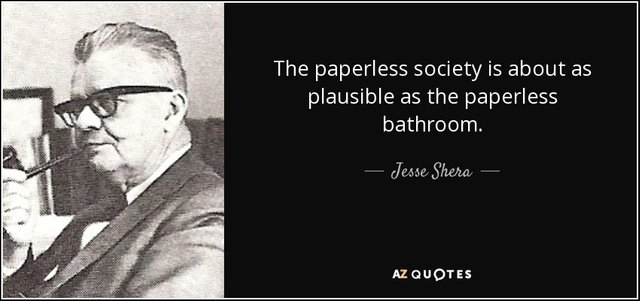Information Science and Its Epistemologies
Articles from this series
- Information science - Introduction
- Information science – Uniqueness and essential questions
- Information science – Philosophical approaches
- Information science – Paradigms
Main source
Introduction to Information Science - DAVID BAWDEN and LYN ROBINSON

Epistemology

Epistemology is a philosophical subject about exploring human’s recognition, its origin, processes and its subjects. In this article I will once again share with you three main epistemologies that has changed the design of Information science.
Karl Popper and dispassionate epistemology

He tried to perceive cognition as objective aggregate of “knowledge without the perceiving subject”. He has supported his thesis that knowledge grows and dies just like any life-form in biological evolution. Theories are being updated or cut off and replaced by better ones, when their invalidity is proved by experiments, arguments, or basically anything else. He thought that we go all out with our theories and let them fight for us – either they prevail, or die instead of us. To further support this theory, he created the system of three worlds. The first world was the world of physical objects – basically the objective world around us. The second world was the world of subjective and mental contents in our individual minds. The third world was the world of intercommunicable knowledge.
Jesse Shera and social epistemology

To be honest I don’t know why this epistemology is even one of the main ones in Information science, because in numerous publications Shera has written during his life, there is no coherent theory that could be easily explained. More or less it’s just bunch of theses from a guy that probably refused the existence of researchable objective world. So as those of you that have read my previous articles probably guessed, social epistemology (despite the different terminology) is more or less just a cognitive paradigm explained in the article before. Shera regarded cognitive paradigm as a solution for information scientists that were in need of theoretical basis and also for some kind of bridge in between theory and practice. He regarded it as self-consistent system of processes through which the society has collectively reached some kind of knowledge.
Luciano Floridi and philosophy of information

Floridi thinks that each and every philosophical problem can be rephrased in information terminology. He also thinks that the definition of information is one of the hardest questions of philosophy of information. After several years and publications he settles with the definition “Information is well created and meaningful data”. He thinks that there are 3 different points of view of information. The first is “reality” (physical world), the second is “about reality” (semantics and meaningfulness) and the third is “for reality” (genetic information and algorithms). Part of the Floridi’s scheme is “inforg”. Inforg is a sentient informational organism. Floridi also supports information ontology, or in other words the theory that information is the core structural material of the whole universe. He doesn’t think that universe is some kind of digital computer, just that the objective world is formed by information and trough them can be perceived and studied. So basically he thinks that everything is information, human specie is the only known sentient informational being, thus we are the only specie that can pursue the goal of unlocking the knowledge about objective reality, which isn’t anything else but information that is encoded in the energy that creates the physical world we live in (very simply put). This theory has become the core of information science.
